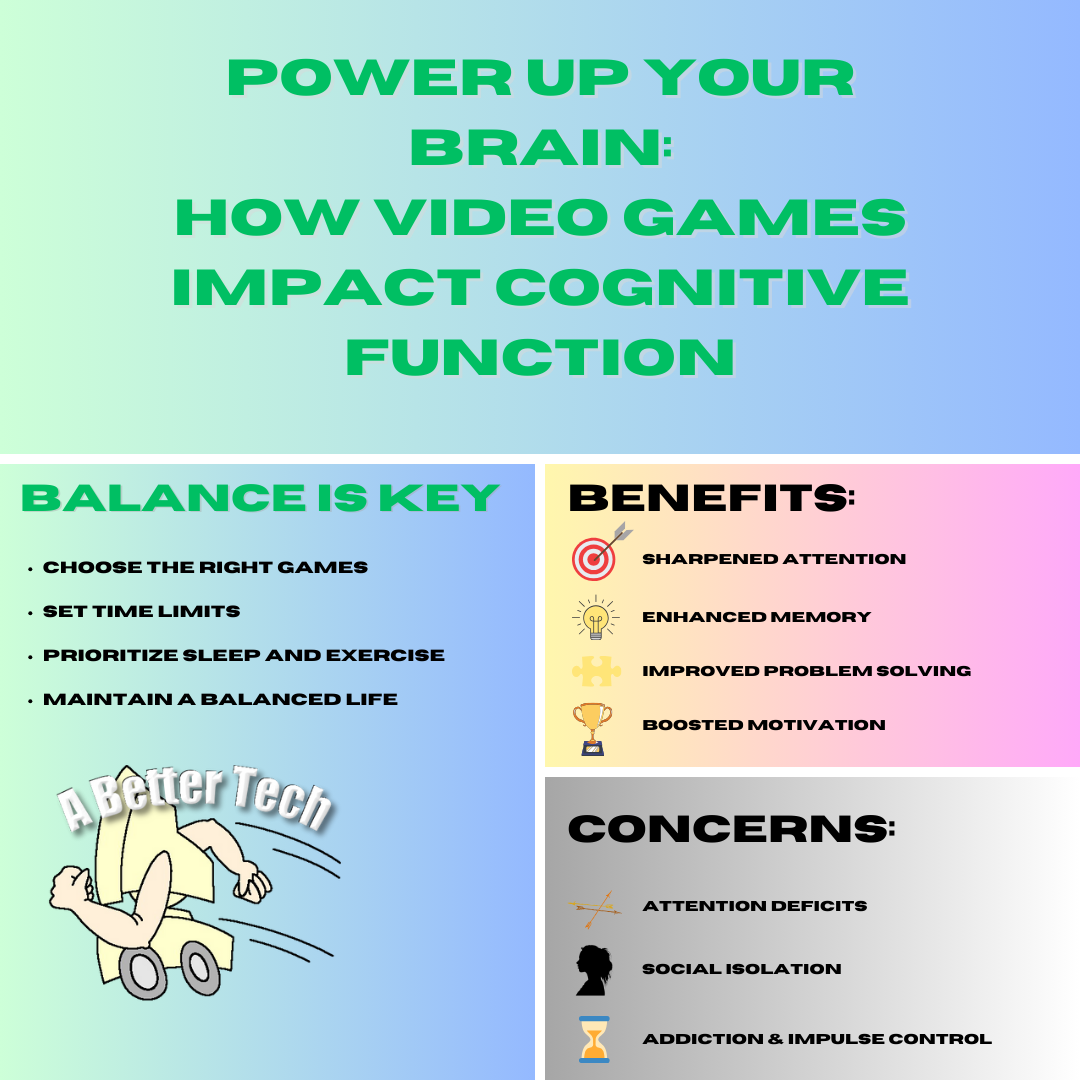Video games have become a global phenomenon, captivating players of all ages. From the immersive worlds of RPGs to the fast-paced action of shooters, these digital playgrounds offer entertainment, social connection, and even a surprising cognitive workout. But how exactly do video games affect the brain? Let’s delve into the science behind gaming and explore its potential benefits and drawbacks for cognitive function.

Boosting Attention and Focus:
Many video games, particularly action and strategy games, demand sustained attention and rapid decision-making. Players must track multiple moving objects, anticipate enemy movements, and react quickly to changing situations. Studies suggest that this constant engagement can improve visual attention and the ability to filter out distractions. Research published in the journal Nature Neuroscience found that action video game players displayed enhanced visual processing and superior performance in tasks requiring focused attention.
Sharpening Memory and Learning:
Certain video games, especially puzzle games and RPGs, rely heavily on memory and spatial reasoning. Players need to remember complex in-game mechanics, navigate intricate environments, and solve puzzles that require recalling information and applying strategies. A study published in Frontiers in Human Neuroscience indicated that playing strategy games can enhance spatial memory and improve performance in tasks involving navigation and mental rotation of objects.
Enhanced Problem-Solving Skills:
Video games often present players with challenges that require creative problem-solving and critical thinking. Overcoming obstacles in the game world can translate to improved problem-solving skills in real life. A study published in PloS One demonstrated that playing puzzle games can lead to increased cognitive flexibility and the ability to think outside the box when approaching problems.
The Reward System and Motivation:
Video games effectively tap into the brain’s reward system. Completing tasks, achieving goals, and leveling up triggers the release of dopamine, a neurotransmitter associated with pleasure and motivation. This positive reinforcement loop can keep players engaged and motivated to learn and improve their skills within the game. This can potentially translate into increased motivation for tackling challenges and achieving goals in other areas of life.
The Downside of Gaming: Potential Concerns
While video games offer potential cognitive benefits, it’s important to acknowledge potential drawbacks. Excessive gaming can lead to:
- Attention Deficits: While some games enhance focus, others might encourage rapid attention switching and fragmented attention spans. This could negatively impact the ability to concentrate on tasks requiring sustained focus in real-life scenarios.
- Social Isolation: Excessive gaming can lead to neglecting social interactions and real-world activities, potentially hindering social development and interpersonal skills.
- Addiction and Impulse Control: The dopamine release associated with gaming can lead to addictive behaviors. Players might prioritize gaming over other responsibilities and struggle to control their playtime.
Finding the Balance: Optimizing Gaming for Brain Health
The key to maximizing the cognitive benefits of video games lies in moderation and mindful play. Here are some tips:
- Choose the right games: Opt for games that challenge your cognitive skills, such as strategy games, puzzle games, or platformers.
- Set time limits: Establish healthy gaming habits and stick to them. Take breaks to avoid fatigue and eye strain.
- Prioritize sleep and exercise: A healthy lifestyle supports overall cognitive function. Prioritize sleep and physical activity alongside your gaming sessions.
- Maintain a balanced life: Don’t let gaming become all-consuming. Make time for social interaction, hobbies, and other important activities.
Conclusion
Video games can be powerful tools for cognitive training and entertainment. By understanding their potential benefits and drawbacks, we can leverage the positive aspects of gaming while promoting healthy and balanced gaming habits. Whether you’re a seasoned gamer or a curious newcomer, remember, the key lies in mindful play and finding the right balance to optimize your gaming experience for both fun and cognitive stimulation.